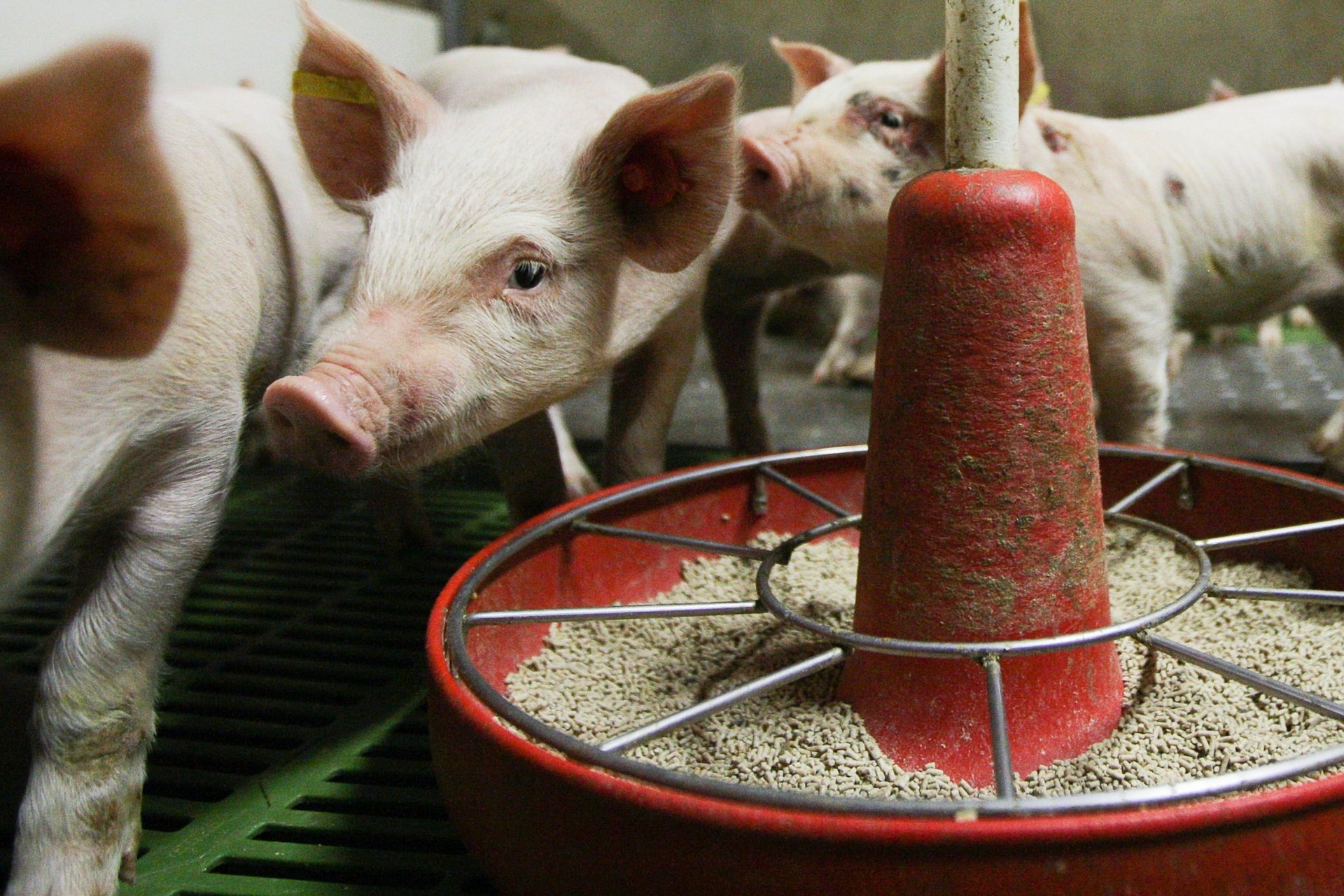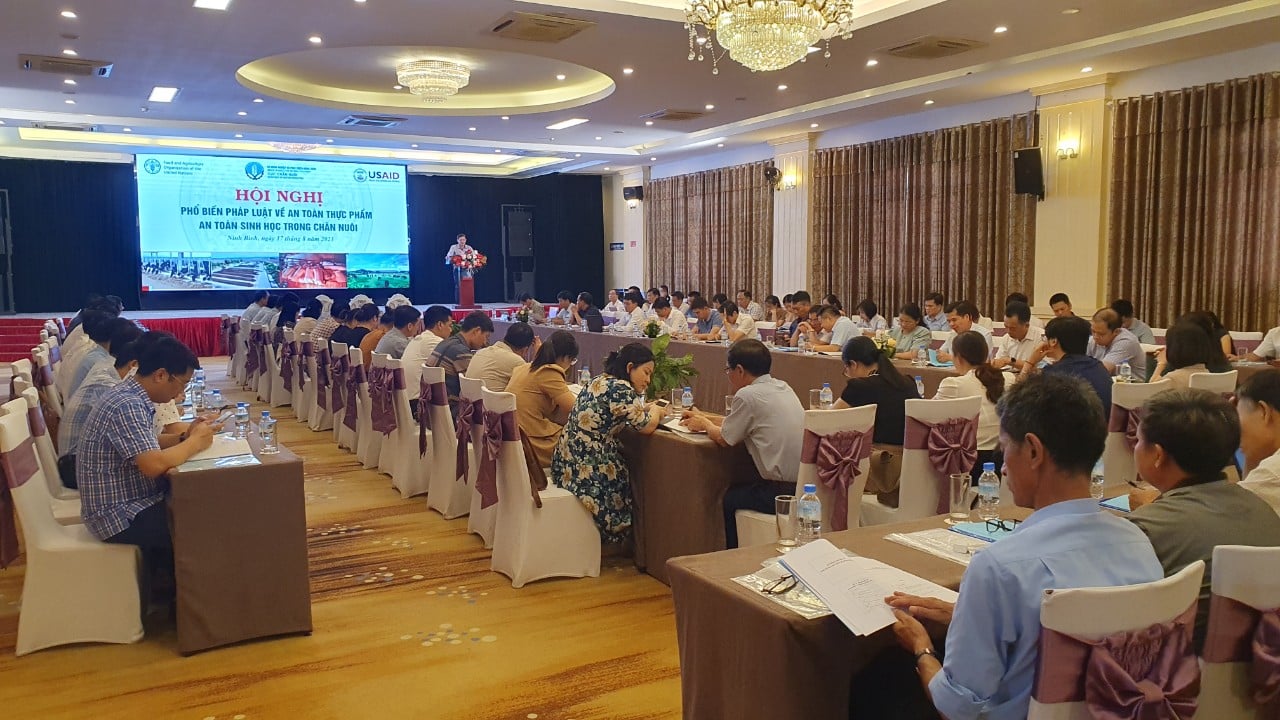May 30, 2025 | 10:40 GMT +7
May 30, 2025 | 10:40 GMT +7
Hotline: 0913.378.918
May 30, 2025 | 10:40 GMT +7
Hotline: 0913.378.918

Enhancing awareness for livestock farmers, consumers, and regulatory authorities on prohibited substances in the Beta-Agonist (Salbutamol, Clenbuterol) and Ractopamine Group: properly understanding and adhering to the law. Photo: HT.
Starting from January 1, 2020, the Law on Animal Husbandry, Decrees, and Guiding Circulars have come into effect. Additionally, the Livestock Development Strategy until 2030, with a vision towards 2045, approved in Prime Ministerial Decision No. 1520/QD-TTg, has opened up new opportunities for livestock integration, monitoring and sustainable development.
After over three years of implementing these legal frameworks, certain emerging issues and challenges in enforcement have been identified, necessitating adjustments to better align with practical conditions.
Especially in 2022 and 2023, Government Decree No. 46/2022/ND-CP has been issued to amend and supplement some provisions of Government Decree No. 13/2020/ND-CP guiding the Law on Animal Husbandry, and QCVN 01-195:2022/BNNPTNT regarding livestock wastewater for crop use by the Ministry of Agriculture and Rural Development. These changes have contributed to the improvement of the livestock environmental management legal system.
In addition to enhancing livestock environmental regulations, Circulars and Vietnamese Technical regulations regarding livestock feed have also been reviewed and revised to better align with the current situation.
Towards the end of 2022 and the early months of 2023, the reemergence of prohibited substance use in livestock has been observed. The use of such substances has been detected in some pork and beef production facilities located in the Central and Southern regions. This not only has adverse effects on public health but also significantly impacts the domestic livestock industry.
The Ministry of Agriculture and Rural Development has issued Circular No. 21/2019/TT-BNNPTNT, which provides guidance on certain aspects of the Law on Animal Husbandry concerning livestock feed.
This circular instructs on various matters, including the compulsory disclosure of livestock feed quality criteria in applicable disclosure standards, labeling of livestock feed, reporting on livestock feed production, listing prohibited chemicals, biological products, and microorganisms for use in livestock feed, and the list of permitted ingredients for livestock feed.
Accordingly, the Ministry of Agriculture and Rural Development has released a list of 25 prohibited chemicals, biological products, and microorganisms for use in livestock feed. These include Carbuterol; Cimaterol; Clenbuterol; Chloramphenicol; Diethylstilbestrol (DES); Fenotero; Furazolidone and its Nitrofuran derivatives; Isoxuprine; Methyl-testosterone; Metronidazole; 19 Nor-testosterone; Salbutamol; Terbutaline; Stilbenes; Trenbolone; Zeranol; Melamine (with Melamine content in livestock feed exceeding 2.5 mg/kg); Bacitracin Zn; Carbadox; Olaquidox; Vat Yellow 1 (also known as flavanthrone, flavanthrene, sandothrene); Vat Yellow 2 (also known as Indanthrene); Vat Yellow 3 (also known as Mikethrene); Vat Yellow 4 (also known as Dibenzochrysenedione, Dibenzpyrenequinone); and Auramine (also known as yellow pyoctanine, glauramine); Cysteamine.
Within this list of prohibited chemicals by the Ministry of Agriculture and Rural Development, there are 7 compounds from the β2-agonist group, including Carbuterol, Cimaterol, Clenbuterol, Fenoterol, Ractopamine, Salbutamol, and Terbutaline. Clenbuterol, Salbutamol, and Ractopamine are the most commonly encountered substances within this group.
Globally, the use of Clenbuterol and Salbutamol in livestock farming is prohibited in all countries. Ractopamine, too, is mostly banned in livestock production across the world. However, in Vietnam, due to profit-driven motives, the usage of these prohibited substances among livestock farmers is on the rise nationwide, and comprehensive control has proven to be challenging.
In light of this situation, the leadership of the Ministry of Agriculture and Rural Development has tasked the Department of Livestock Production with implementing a program to inspect and monitor the use of prohibited substances in the Beta-Agonist group (Salbutamol, Clenbuterol) and Ractopamine in livestock farming.

The Department of Livestock Production organizes a conference to disseminate the implementation of the monitoring program for prohibited substances in the Beta-Agonist group (Salbutamol, Clenbuterol), and Ractopamine in Ninh Binh. Photo: Dinh Muoi.
On August 17th, in Ninh Binh, the Department of Livestock Production organized a conference to disseminate the laws on food safety and biological safety in livestock farming.
During the conference, the Department of Livestock Production provided information on the implementation of the monitoring program for prohibited substances in the Beta-Agonist group (Salbutamol, Clenbuterol), and Ractopamine at farms where cattle and pigs are raised in various localities.
According to the Department of Livestock Production, the goal of the program is to monitor and assess the enforcement and application of laws regulating prohibited substances in the Beta-Agonist group (Salbutamol, Clenbuterol), and Ractopamine in livestock farming. This would allow for timely measures to be taken to ensure the safe production of livestock products.
The program aims to raise awareness among livestock farmers, consumers, and regulatory authorities about the laws concerning prohibited substances in the Beta-Agonist group (Salbutamol, Clenbuterol), and Ractopamine in livestock farming and to ensure their proper enforcement.
The program will include several key activities such as: conducting on-site inspections at localities; organizing conferences, seminars, and training to disseminate and promote regulations related to livestock farming and food safety in livestock production; publishing documents related to state management of food safety in the livestock sector.
It is hoped that with the efforts put into the implementation of the monitoring program for prohibited substances in the Beta-Agonist group (Salbutamol, Clenbuterol), and Ractopamine; the determined involvement of the Ministry of Agriculture and Rural Development, various levels of government, and collaborative efforts from localities will address the root cause of the pressing issue of prohibited substances in livestock farming.
Translated by Nguyen Hai Long

(VAN) Ms. Nguyen Thi Dung, Deputy Director of Ngoc Hoang Cooperative, shared about the journey of bringing dragon fruit to Europe, achieving annual revenues in the billions of VND.

(VAN) Bamboo products from Thang Tho Bamboo Cooperative have reached many countries around the world, while also creating jobs for local workers.

(VAN) The Management Board of Con Dao National Park reported that a green sea turtle, tagged in the Philippines, has traveled thousands of kilometers to lay 84 eggs on Bay Canh Islet.

(VAN) Green technology is paving a new path for sustainable aquaculture in the Mekong Delta in particular and across the country in general, helping reduce emissions and adapt to climate change.

(VAN) On May 27, La French Tech Vietnam (the French startup and innovation community in Vietnam) held the French Tech Summit Vietnam 2025.
/2025/05/27/4731-2-223159_980.jpg)
(VAN) No votive paper, no styrofoam, no plastic bags, no plastic bottles, and no single-use plastic trays are the key rules tourists should keep in mind when visiting Con Dao.

(VAN) In the fight against plastic pollution, Vietnam has been demonstrating a proactive, pioneering, and active role in addressing the greatest environmental challenge today.